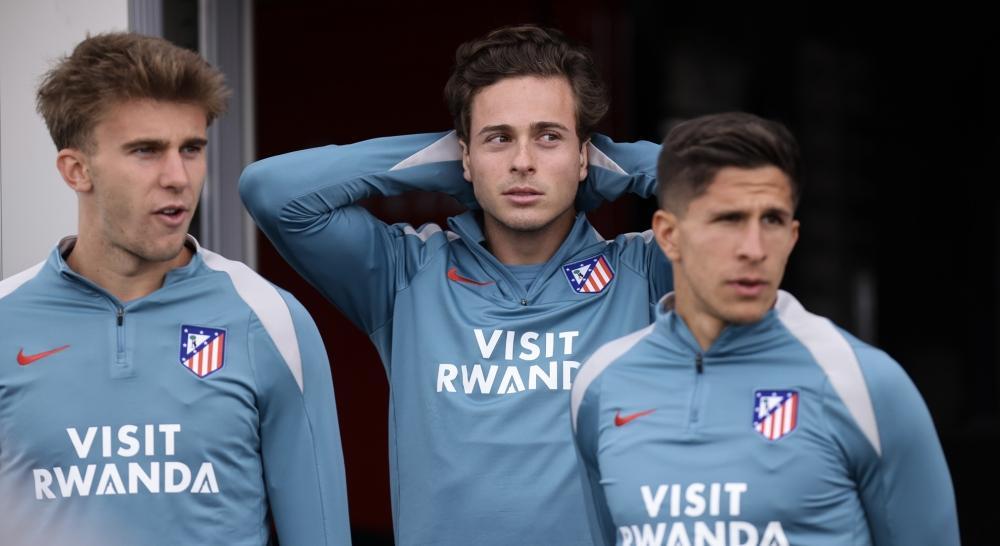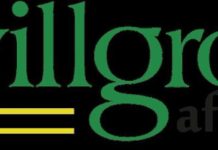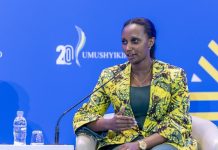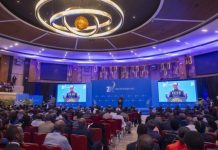Africa-Press – Rwanda. Kigali’s strategy to tap into the global appeal of football reached another milestone this week, as the Rwanda Development Board (RDB) and Atlético de Madrid announced a three-year partnership.
The deal will see “Visit Rwanda” featured prominently on the Spanish club’s kits and stadium until June 2028.
This landmark deal places Rwanda in the heart of LaLiga, one of the world’s most-watched football leagues, adding to an already impressive roster of global partnerships with clubs like Arsenal, Bayern Munich and Paris Saint-Germain (PSG).
But what exactly does Rwanda stand to gain from these multi-million dollar investments in football sponsorship—and what do the clubs get in return?
Launched in 2018, the “Visit Rwanda” campaign aims to present the country as a high-value stop with unique offerings like gorilla trekking, beautiful landscape, and cultural heritage.
Through these partnerships, the brand now enjoys prime visibility in the Premier League, Bundesliga, Ligue 1, and now LaLiga—four of the most-watched football leagues in Europe and in the world at large.
Without readily available figures for us to put our fingers on what exactly each dollar will count for, I can only share my opinion of what each party seeks to gain from this/these partnership(s).
Branding Rwanda on a global stage:
At the heart of these sponsorships is Rwanda’s ambition to position itself as a high-end tourist and investment destination.
With slogans like “Visit Rwanda” emblazoned on match kits, training gear, and stadium billboards seen by millions globally, the country is banking on sports as a powerful marketing channel.
Tourism is one of Rwanda’s leading sectors, contributing about 10% to its GDP before the COVID-19 pandemic, according to reports.
While numbers dipped during global travel restrictions, strategic branding campaigns are helping reignite the industry’s growth.
The country aims to attract high-value tourists interested in its unique offerings—from gorilla trekking in Volcanoes National Park to cultural experiences in Kigali, and other places.
The latest example being the visit of former Atletico and Manchester City forward Sergio Aguero, to Kibeho in his private capacity-. Our Lady of Kibeho Shrine, is a Catholic Church site.
The famous Argentinian star visited this holy land and is reported to have spent a whole week there, delving into the divine mysteries that surround Kibeho.
“Through this collaboration, we aim to showcase Rwanda as an attractive destination for investors, a unique experience for global travelers, and a platform for nurturing talent,” said RDB CEO Jean-Guy Afrika.
The deal with Atlético, he added, aligns with Rwanda’s national values of “resilience, discipline, and excellence.”
With similar campaigns running through the Premier League, Bundesliga, Ligue 1, and now LaLiga, Rwanda is creating unmatched visibility across Europe’s footballing elite.
These platforms not only promote tourism but also reinforce the country’s image as a forward-looking, stable, safe, and modern African nation.
A broader development agenda:
Beyond visibility, the partnerships also support Rwanda’s domestic ambitions in sports and youth development.
Part of the sponsorship packages include knowledge sharing, youth training programs, and grassroots football initiatives.
PSG and Arsenal, for instance, have both run coaching clinics and supported local talent development in Rwanda.
Atlético’s inclusion opens the door for new exchange programs and talent scouting avenues.
With a strong history of talent development and a pipeline to top-tier European competition, the club’s expertise could become a vital tool for Rwanda’s youth.
There’s also a significant coffee export angle. Under the latest deal, Rwanda becomes Atlético’s Official Coffee Supplier, adding economic substance to the equation.
What the clubs get in return:
For clubs like Atlético Madrid, the benefits are not just financial. While the sponsorship deals bring in millions of dollars annually, these clubs are also using their relationships with Rwanda to expand their global footprints.
Óscar Mayo, Atlético’s General Director of Revenue and Operations, described the partnership with Visit Rwanda as “important for our club’s goal of international expansion.”
This aligns with similar sentiments from Bayern Munich, which has engaged in youth training programs in Rwanda as part of its brand-building efforts across Africa.
With Latin American stars like Sergio Aguerro, Diego Forlán and Radamel Falcao having defined eras at Atlético, the Visit Rwanda branding could even gain traction in South America—another region with growing economic ties to Africa and a deep love for football.
The Atlético deal, in particular, opens doors in the Spanish-speaking world. With Real Madrid and FC Barcelona dominating headlines, Rwanda now has a stake in LaLiga’s fiercely competitive narrative.
If Atlético’s fan base continues to grow across Africa—and possibly in Spanish-speaking nations—Rwanda’s visibility will rise in tandem.
This partnership could also spur reciprocal interest, with Rwandan fans engaging more with Atlético, fostering cultural ties and driving tourism curiosity.
With four of Europe’s biggest football clubs now serving as brand ambassadors, the country has turned elite sport into a platform for transformation, promotion, and pride.
And as Kigali prepares to host the 2025 UCI RoadWorld Championships and continues its push to secure a Formula 1 race, its sports diplomacy is showing no signs of slowing down.
With clubs like Arsenal, PSG, Bayern Munich, and now Atlético Madrid as partners, Rwanda is scribbling a unique playbook—using the beautiful game to power national transformation.
And who can doubt that in this global game of influence and visibility, Rwanda might not just be playing—it’s winning.
For More News And Analysis About Rwanda Follow Africa-Press






